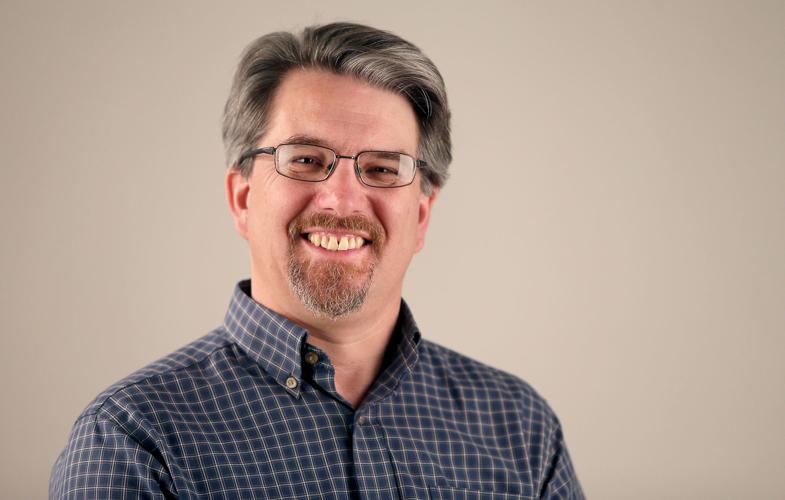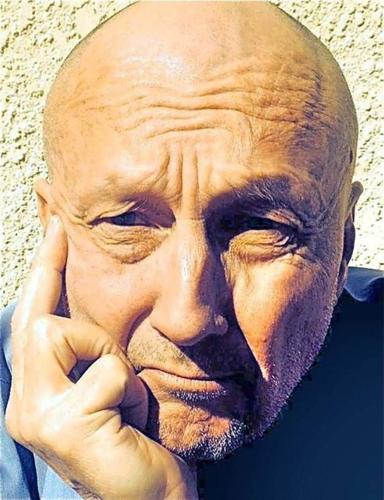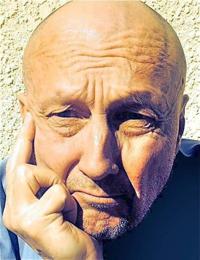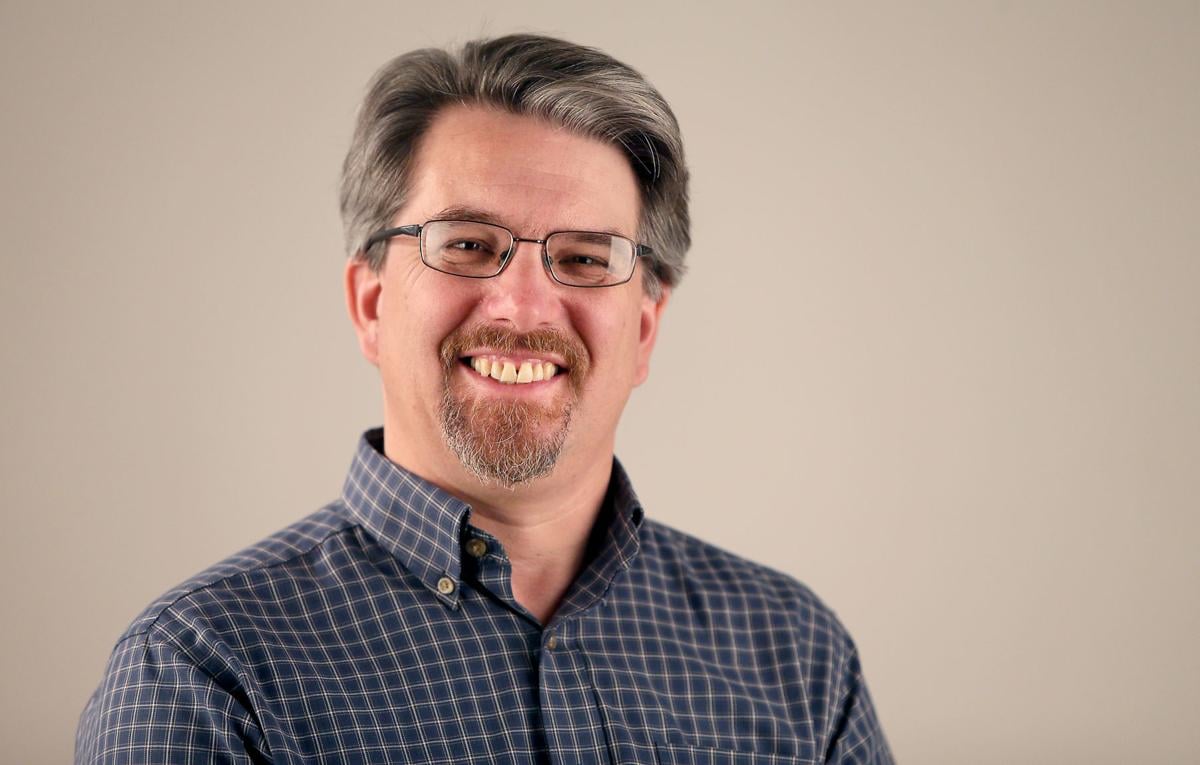David Morgan has been a thorn in the side of Cochise County law enforcement for years.
The police, the jail, the Sheriff’s Department, the prosecutors — all have been the subject of his critical reporting, casting many of them as corrupt, misguided or incompetent.
Now they think he’s crossed the line. They’re even investigating him for a crime.
But they’re probably wrong.
Morgan is what you might call a citizen journalist, a blogger, or an activist-reporter. Take your pick or write your own descriptor. In short, he’s like many people around the country who have taken advantage of the miracle of the internet to start their own news outlet.
The Cochise County Record is what he calls his news outlet, but much of his reporting occurs on a Facebook page with the unwieldy name “Cochise County Courts, Crime, Jail, Justice & Politics.”
That’s where Morgan reported the scoop that has landed him in his latest conflict with the Cochise County Attorney’s Office and the Sheriff’s Department. Morgan, you see, tends to stand up for defendants in the criminal-justice system, and he has a special interest in Roger Wilson, now sitting in the Cochise County Jail accused of first-degree murder.
On Oct. 6, Wilson’s then-attorney, a Tucson-area lawyer named David Wilkison, filed a motion to send Wilson’s indictment, for killing a young man named J.D. Arvizu on June 22 in Hereford, back to the grand jury.
“Here,” Wilkison wrote, “the State presented testimony to the Grand Jury in an extremely biased manner by picking and choosing what parts of different stories from different witnesses to present to the Grand Jury. This is in direct violation of the very premises (sic) of what a grand jury proceeding stands for: A fair and unbiased presentation of the evidence due to the ex parte nature of the hearing.”
Crucially, Wilkison attached the entire grand jury transcript to the motion, meaning that it was public record after he filed it. Grand jury transcripts are normally secret unless filed this way.
Morgan obtained the transcript and promptly published it online.
How he obtained it is partly in question. Morgan told me that the night the transcript was filed, he didn’t have the money to buy a copy of the 87-page document, and Wilkison sent him the whole filing, including the transcript, later. (Wilkison declined to comment for this column.)
“Exactly how he (Morgan) came into possession and when he came into possession of the transcript is part of what’s being investigated,” Cochise County Attorney Brian McIntire told me, noting there are “three versions of the event and they don’t jibe.”
Soon after Morgan posted the transcript on Oct. 8, McIntire’s office asked him to remove it and he declined, saying he wanted to consult a lawyer. It wasn’t until Oct. 16 that a judge ordered the original motion and transcript sealed.
Soon after, the Sheriff’s Department — actually, the same detective who testified at the grand jury hearing in question — began an investigation into Morgan. You see, it is a misdemeanor under Arizona law to unlawfully disclose grand jury testimony.
ARS 13-2812 says “A person commits unlawful grand jury disclosure if the person knowingly discloses to another the nature or substance of any grand jury testimony or any decision, result or other matter attending a grand jury proceeding, except in the proper discharge of official duties, at the discretion of the prosecutor to inform a victim of the status of the case or when permitted by the court in furtherance of justice.”
Detective Todd Borquez has gone as far as to serve a search warrant on Facebook to get the information about who posted the transcript.
The Cochise County Attorney’s Office has also requested a temporary restraining order, asking a judge to force Morgan to take down the transcript. So far, no judge has ruled, and Morgan is hoping to get a judge from outside Cochise County to consider the case.
The animosity in the Cochise County law-enforcement community against Morgan goes back especially to 2012. That’s the year Morgan made a public records request not just for the accident-scene photos but also the autopsy photos resulting from the fatal vehicle crash in which then-Sheriff Larry Dever died. He was driving drunk, very drunk, in the woods near Williams and the accident-scene photos showed the alcohol.
But asking for and publishing the autopsy photos, to many, seemed a bridge too far. After that, in 2014, the state Legislature restricted access to autopsy photos, exempting them under the state’s public records law.
”I don’t deal with Mr. Morgan. He’s a blogger,” Cochise County Sheriff Mark Dannels told me. “There’s never anything positive. Everything’s a conspiracy. He’s not reasonable.”
But it’s unlikely the Cochise County authorities are likely to prevail, for a couple of reasons. One, UA law professor Jane Bambauer told me, is that the U.S. Supreme Court has ruled that journalists may publish leaked documents, as long as they didn’t induce illegal leaking. It doesn’t matter if the journalists represent the New York Times or the Cochise County Record.
Another is that there’s no real argument that when a document is filed and not sealed, it becomes part of the public record. That’s common in Pima County, as both Public Defender Joel Feinman and Deputy County Attorney Malena Acosta told me.
”Once it becomes part of the public record, once it is attached, there’s nothing wrong with that at all,” Acosta said of the issue of public disclosure of a transcript. Acosta is the department's legal adviser for the grand jury.
Perhaps most important, the issue of the use of secret grand juries is a legitimate public issue. They are one-sided by design, with only the prosecutor, the court reporter, the grand jury and the witnesses ever appearing. There’s no judge and no defense attorney.
As Feinman told me, “There aren’t two sides in a grand jury proceeding. There’s one side. The deck could not be stacked more in favor of an indictment. Even if the prosecutor is a fair-minded person, the system is set up so that you don’t hear from the defense or defendant.”
So even if you think Morgan was tasteless in his pursuit of autopsy photos, if you don’t think he’s a legitimate journalist, or if you think he has a bias against law enforcement, you have to acknowledge he probably has case law on his side. He’s also chasing a real story. No wonder the authorities find him such a pain.







